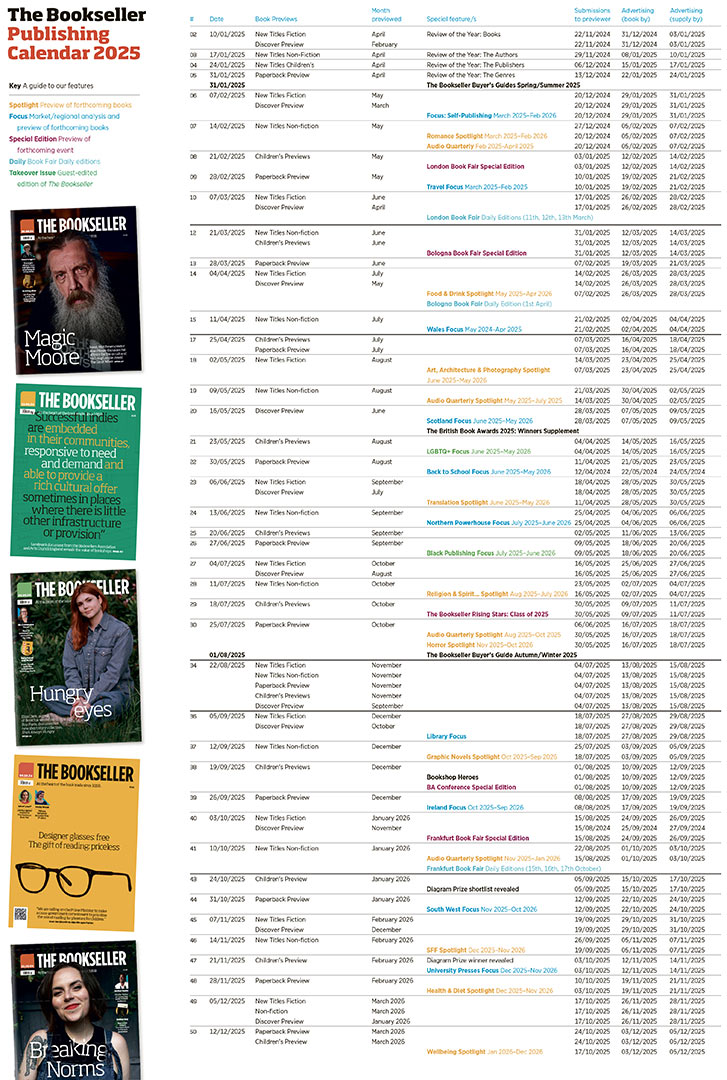You are viewing your 1 free article this month. Login to read more articles.
Whitaker’s way
In honour of The Bookseller’s 6,000th issue, Rachel Calder takes a look back at the pivotal role of its first editor, Joseph Whitaker.
When the first issue of The Bookseller appeared in January 1858, it was an immediate success and quickly became a blueprint for a new kind of trade journal that was squarely aimed at the needs of the retailers rather than the producers of books. The new journal offered copious amounts of book advertising and pages of news, commentary, book reviews and statistics designed to help booksellers better negotiate the treacherous commercial environment. In addition to supplying all this otherwise-hard-to-find information, the editor, Joseph Whitaker, acted as an unofficial overseer of trade activity, monitoring discussions in the letters pages, commissioning articles of interest and offering guidance to his readers. His aim was for a more informed, better trained and more engaged book trade.
While The Bookseller presented itself as an impartial forum, the editorial tone was set by Whitaker and reflected his priorities. As editor, he was both an institutionalist and a moderniser. As an experienced bookman, he had a high regard for regulation and adherence to longstanding trade conventions, but he also held an unsentimental conviction that some of the trade’s business practices were in need of reform. His ire was particularly aimed at underselling, which was routinely referred to as a damaging practice. He had concluded that booksellers’ low confidence in their own expertise was part of the problem, as it left them vulnerable to exploitation by both suppliers and customers.
For Whitaker, bookselling was a skilled occupation, “rather like a profession than a trade”, and required a deep knowledge of literary and bibliographic history. As many customers were educated men—clergymen, barristers and members of Parliament—booksellers had to be able to converse about the content and merits of their books as well as know their prices and formats. If booksellers were better informed, especially about “the present ruinous system [of underselling]”, they could resist the temptation to cheapen their stock. Booksellers had to develop greater pride in their work and foster a principled collective identity.
Booksellers were advised to read The Bookseller to better understand the changing market for books, including the new kinds of readers at the lower ends of the social scale. Perhaps prompted by Wilkie Collins’ essay in Household Words on the vast potential readership hidden among the “Unknown Public”, booksellers were advised to look beyond their usual coterie of literary customers. They could familarise themselves with the popular lower-priced books by travelling to the poorer parts of London and the outskirts of towns and studying the shop windows of booksellers who catered to people who read cheap literature.
Although a better understanding of the market was important, Whitaker also knew that there were structural forces and imbalances within the book trade that put booksellers at a disadvantage. Publishers held the balance of power by controlling the supply of books, creating the potential for misuses of that market power or the exploitation of an unfair advantage. While having no power himself to change these dynamics, Whitaker could at least highlight the risks for booksellers. For instance, the move by Simpkin Marshall to a larger premises in Stationers Hall Court prompted warnings that this expansion meant that it would now “monopolise all the London trade”.
An eye on the future
Whitaker was a diligent editor and remained acutely attuned and responsive to the needs of the bookselling trade. He also worked hard, claiming that “we editors not infrequently work 18 out of the 24 hours”, and attributed the success of The Bookseller to “the hearty manner” in which he worked. Many of the obituaries confirmed his dedication to his work. His single-minded commitment to The Bookseller and his readers was such that he published no other titles for the next 10 years after its launch: “I threw myself into the work and, for a long time, did nothing else. It never reached my ideal, in fact the work just adapted itself to the requirements of the trade, and I was wise enough to let it go its own way and not force any of my hobbies into its pages.”
At the end of 1859, just two years after the first issue, Whitaker congratulated his readers and himself for the improvements in the trade and claimed that, thanks to his efforts, there was “no longer the apathy and ignorance of literature”.
While acknowledging that there were areas for improvement, the journal had fulfilled his main ambitions; booksellers were now “thoroughly well-informed of all professional matters, as well as interested in them”. It is a testament to Whitaker’s understanding of his readers’ needs and his deep knowledge of the book industry that The Bookseller remains “at the heart of the book trade” to this day, with its original editorial structure and mission more or less intact.

















